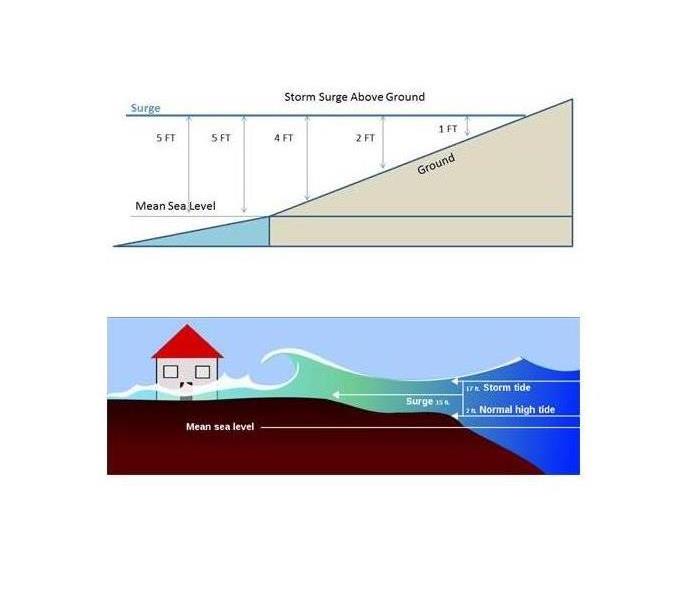What is Storm Surge?
5/10/2018 (Permalink)
Along the coast, storm surge is often the greatest threat to life and property from a tropical or extratropical storm. (A tropical storm forms over warm waters and is driven by heat transfer from the higher temperatures of the ocean to the lower temperatures at higher altitudes. Extratropical storms result from the temperature contrast between warm and cold air masses as they move against each other horizontally. Tropical storms can become extratropical if they lose tropical characteristics.)
Floods are frequent, costly, and deadly hazards for coastal communities. To prevent disaster, avoid the water and waves; when local authorities instruct you to evacuate, do it quickly!
Storm surge is an abnormal rise in water level, over and above the regular astronomical tide, caused by forces generated from a severe storm's wind, waves, and low atmospheric pressure. Storm surges are extremely dangerous, because they are capable of flooding large coastal areas.
Depth of a Storm Surge
In order to clearly describe flood impacts, storm surge inundation is described in terms of height above ground level. National Weather Service (NWS) storm surge forecasts and statements reference storm surge in this way. This means when NWS forecasts storm surge of 20 feet above ground level for a particular area, 20 feet of water will cover that area. The depth of the flooding above ground level will gradually decrease as it moves further inland. However, some coastal regions have vast areas of low-lying land, so know your local conditions and how far inland local authorities consider vulnerable. Pay attention to evacuation warnings to avoid severe damage.
Need Storm or Flood Cleanup Services?
Call Us Today
Source :
http://www.nhc.noaa.gov/






 24/7 Emergency Service
24/7 Emergency Service
